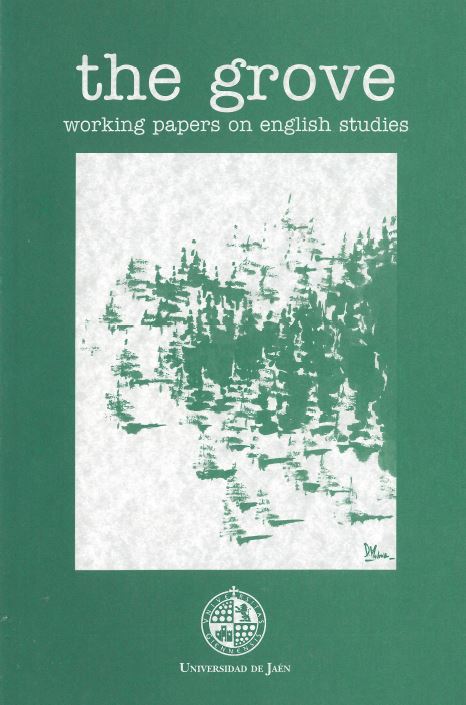Place, Space and Identity in Modern Drama: Analysis of Four Selected Plays
Keywords:
modern drama, identity crisis, Chekov, Miller, Saroyan, YamuchiAbstract
Individual’s identity has always been expressed by abstract terms like culture, beliefs, religion, values etc. In this paper, I argue that modern playwrights show that the generations of the modern era tend to identify more with place, a concrete entity, than they do with the traditional constitutive elements of identity since these abstractions started to lose their glamour and value in an age marked by tremendous advancement in technology and materialism. With the modern generations increasingly associating themselves with place, an identity crisis has emerged since place is contingent to economic and social factors i.e. is not as stable as culture or religion. The vulnerability of modern identity turns it into a notion in flux, with no fixed or clear-cut boundaries. Thus, modern age people may live with multilayered identity or swing between two or more identities. Place, with whatever experience is practiced in it, remains the hinge on which modern identity revolves. To show that the phenomenon is a global one, the paper studies four plays representing different cultures and spheres—Anton Chekov’s The Cherry Orchard, Arthur Miller’s Death of a Salesman, William Saroyan’s The Time of Your Life, and Wakako Yamuchi’s And the Soul Shall Dance.
Downloads
References
Ackerman, Alan. “The Prompter’s Box: A Close Reading of Modern Drama”. Modern Drama (Spring 2006): 1-11. DOI: https://doi.org/10.1353/mdr.2006.0042
Als, Hilton. “The Cherry Orchard: Discovering a Russian Master.” The New Yorker (22 Feb 2016): NP. Web. 10 Oct. 2017. <https://www.newyorker.com/magazine/2016/02/22/the-cherry-orchard-at-bam>.
Benwell, Bethan and Elizabeth Stokoe. Discourse and Identity. Edinburgh: Edinburgh University Press, 2006.
Cardullo, Bert. “Death of a Salesman, Life of a Jew: Ethnicity, Business, and the Character of Willy Loman”. Southwest Review 92.4 (2007):583-96.
Chekhov, Anton. “The Cherry Orchard”. Trans. Stark Young. Masters of Modern Drama. Eds. Haskell M. Block and Robert G. Shedd. New York: Random House, 1962. 196-215.
De Certeau, Michel. The Practice of Everyday Life. Trans. Steven Rendall. California: University of California Press, 1984.
Durbach, Errol. “Afterword: Ibsen, Beckett, and Uncertainty”. Modern Drama, Fall (2006): 396-401. DOI: https://doi.org/10.3138/md.49.3.396
Hirsch, Eli. The Concept of Identity. New York and Oxford: Oxford University Press,1982.
Hirst, David L. Tragicomedy: Variations of Melodrama: Chekhov and Shaw. London: Routledge,1984.
Holliday, Shawn. “And the Soul Shall Dance: Thomas Wolfe’s Influence on Wakako Yamouchi”. Thomas Wolfe Society Review 31 (2007): 1-21.
Landau, Tina. “Be Here Now”. American Conservatory Theater. Web. 22 Nov. 2017. <https://www.act-sf.org/content/dam/act/education_department/words_on_plays/The%20Time%20of%20Your%20Life%20Words%20on%20Plays%20(2004).pdf>.
Lefebvre, Henri. The Production of Space. Trans. Donald Nicholson-Smith. Massachusetts: Basil Blackwell Inc., 1991.
Massey, Doreen. Space, Place, and Gender. Minneapolis: University of Minnesota Press, 1994.
Miller, Arthur. Death of a Salesman. Masters of Modern Drama, Eds. Haskell M. Block and Robert G. Shedd. New York: Random House, 1962.
Mol, Hans. “Introduction”. Identity and Religion: International, Cross-Cultural Approaches. Ed. Hans Mol. London: Sage Publications Ltd., 1978. 1-18.
Noonan, Harold W. Objects and Identity: An Examination of the Relative Identity Thesis and Its Consequences. London: Martinus Nijhoff Publishers, 1980. DOI: https://doi.org/10.1007/978-94-017-2466-1
Reid, John McKellor. “Polemic as Parting Advice: The ‘Argument’ of The Cherry Orchard”. Modern Drama 48.1(2005): 30-54. DOI: https://doi.org/10.1353/mdr.2005.0018
Ribkoff, Fred. “Shame, Guilt, Empathy and Search for Identity in Arthur Miller’s Death of a Salesman”. Modern Drama 43.1 (2000): 48-55. DOI: https://doi.org/10.3138/md.43.1.48
Shakespeare, William. As You Like It. Ed. Praveen Bhatia. New Delhi: UBS Publishers’ Distributers Ltd., 1996.
Soja, Edward W. Postmodern Geographies: The Assertion of Space in Critical Social Theory. London: Verso, 1989.
Saroyan, William. The Time of Your Life. Masters of Modern Drama. Eds. Haskell M. Block and Robert G. Shedd. New York: Random House, 1962. 671- 98.
---.“Preface”. The Time of Your Life. Web. 27 Sept. 2017.
<https://www.reddit.com/r/GetMotivated/comments/52x8x5/text_excerpt_from_in_the_time_of_your_life_by/>
Thompson, Terry W. “‘Built Like Adonises’: Evoking Greek Icons in Death of a Salesman”. The Midwest Quarterly 57 (2016): 276-86.
West-Pavlov, Russell. “Space in Theory: Kristeva, Foucault, Deleuze”. Women in French Studies 18 (2010): 171-73. DOI https://doi.org/10.1353/wfs.2010.0007
Yamauchi, Wakako. “And the Soul Shall Dance”. Types of Drama: Plays and Contexts. Eds. Sylvan Barnet et al. 7th ed. New York: Longman, 1997. 836-55.
Downloads
Published
How to Cite
Issue
Section
License
Authors who publish with this journal agree to retain copyright and grant the journal right of first publication with the work simultaneously licensed under a Creative Commons Attribution License that allows others to share the work with an acknowledgement of the work's authorship and initial publication in this journal. Also, authors will retain the rights on their work, even if they will be granting The Grove. Working Papers on English Studies a non-exclusive right of use to reproduce, edit, distribute, publicly communicate and show their work. Therefore, authors are free to engage in additional, independent contracts for non-exclusive distribution of the works published in this journal (such as uploading them to an institutional repository or publishing them in a book), as long as the fact that the manuscripts were first published in this journal is acknowledged.
















